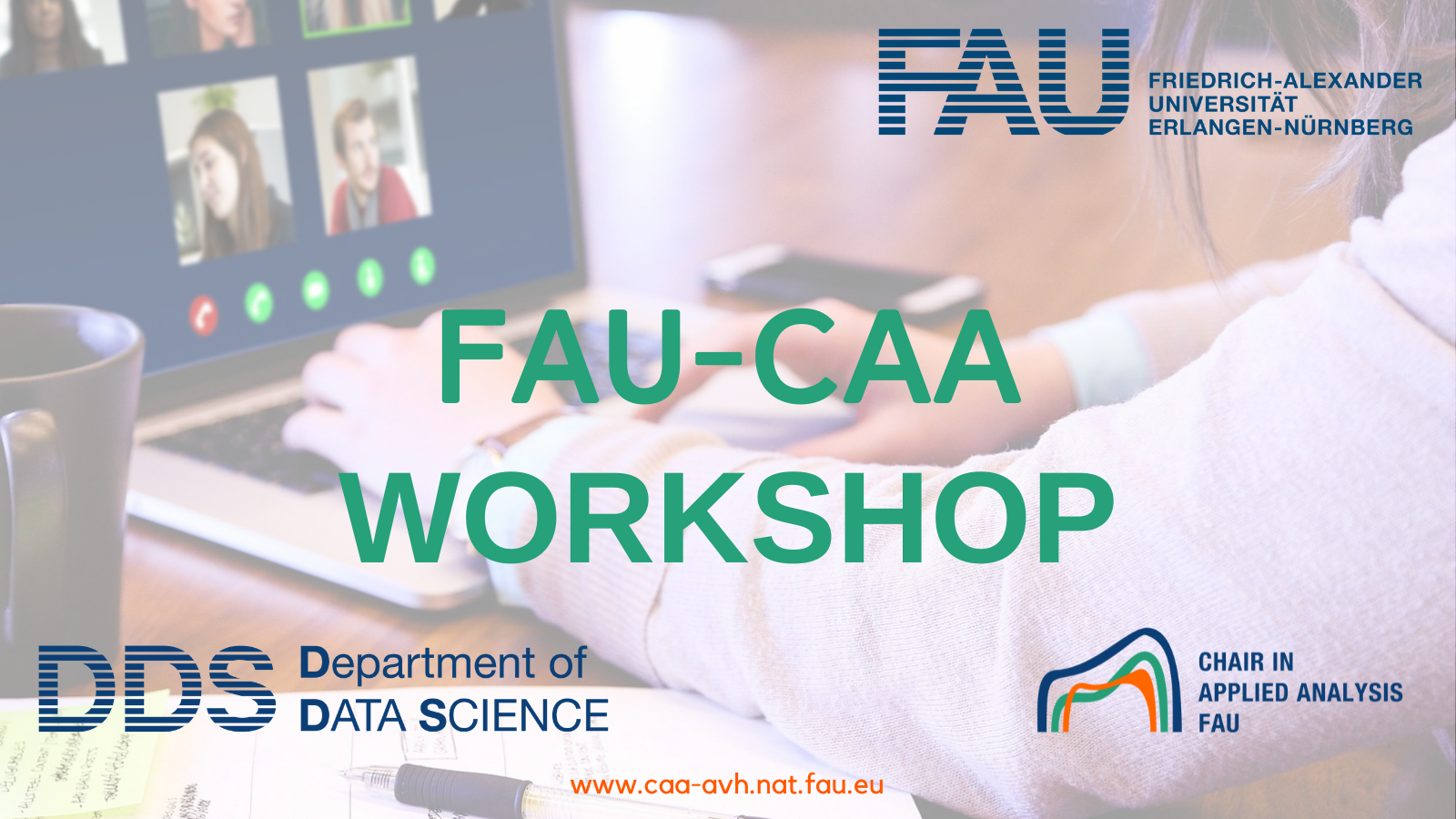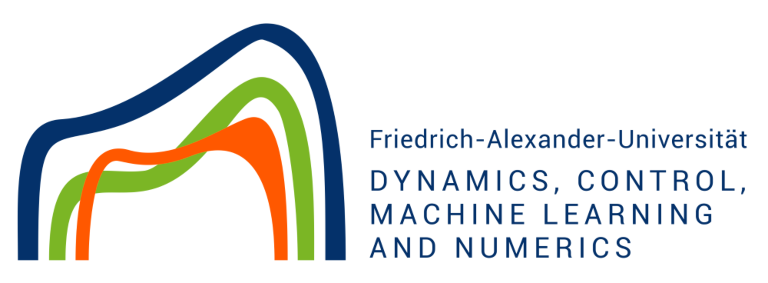
Mini-workshop on Robots Learning, Optimization and Control
Next Monday November 23, the Chair in Applied Analysis – Alexander von Humboldt Professorship at FAU Erlangen-Nürnberg will host a mini-workshop about “Mini-workshop on Robots Learning, Optimization and Control“.
Enjoy with us:
09:00H – 09:30H
Prof. Dr. Murad Muradi – FAU Erlangen-Nürnberg
“Processing Time Optimization for Multi-Robot Systems Using Heuristics Algorithms”
Abstract.
“Processing Time Optimization for Multi-Robot Systems Using Heuristics Algorithms”
-PVC-sealing is a complex process for the tighness and corrosion resistance of the car body.
-Fast and accurate collision detection with suitable collider pairs.
-Using PRM-based motion planning algorithm to generate collision free path between PVC seams.
-Further optimization of path in post-processing to generate short and smooth robot motions.
-Implementation of a genetic algorithm for process optimization and load balancing.
-Successfully application of methodology on real business problem.
-Reduction of non-value-adding part of processing time by up to 17%
09:30H – 10:00H
Prof. Dr. Elisa Strauch – TU Damstadt, Germany
“Probabilistic Constraints in Optimization Problems on Flow Networks”
Abstract. In this talk the focus is placed on probabilistic constraints used in optimization problems on networks. There are two different ways to compute the probability in the constraints: the spheric radial decomposition and the direct approach. The spheric radial decomposition cannot always be applied. For example, if the exact solution of a partial differential equation is needed but unknown. The direct approach is more general: We have to integrate the corresponding probability density function which we can approximate with a kernel density estimation. We consider the two methods for a stationary network problem with uncertain boundary data on networks. Furthermore we extend the probabilistic constraints to dynamic flow problems.
10:00 -Coffee break
10:15H – 10:45H
Prof. Dr. Nora Marie Philippi – TU Damstadt, Germany
“On the transport limit of singularly perturbed convection-diffusion problems on networks”
Abstract. In this talk we consider singularly perturbed convection-diffusion equations on one-dimensional networks (metric graphs) as well as the transport problems arising in the vanishing diffusion limit. We derive suitable coupling conditions at inner vertices for both problems that guarantee conservation of mass as well as dissipation of a mathematical energy which then allows us to prove stability and well-posedness. For single intervals and appropriately specified initial conditions, it is well-known that the solutions of the convection-diffusion problem converge to that of the transport problem for vanishing diffusion and that bounday layers occur at the outflow boundary of the interval. The main difficulty in the analysis on networks is that the number and type of coupling conditions changes in the singular limit which gives rise to additional boundary layers at the interior vertices of the network. Since the values of the solution at these network junctions are not known a-priori, the asymptotic analysis requires a delicate choice of boundary layer functions that allows to handle these interior layers, and eventually prove a corresponding convergence result on networks.
10:45H – 11:15H
Prof. Dr. Andreas Bärmann – FAU Erlangen-Nürnberg
“Polyhedral Results for Energy-Efficient Railway Timetabling”
Abstract. In this talk, we study the of effect optimized timetabling to reduce energy consumption in railway and underground traffic. The idea is to consider trains as time-flexible consumers in the railway power supply network and to use slight shifts in the departure times from the stations to allow for the choice of energy-efficient velocity profiles of the trains. Furthermore, these shifts allow for a better use of recuperated braking energy by synchronizing the departure of one train with the arrival of another. To this end, we derive an efficient mixed-integer programming formulation for the problem of an optimal timetable adjustment based on a given timetable draft. We will be able to show integrality of the underlying timetabling polytope by relating it to a new class of perfect graphs: compatibility graphs with cycle-free dependencies. In an extensive case study for the underground system of Nürnberg, we show that our methods are capable of solving the problem efficiently. We will see that the optimal adjustment of timetables entails a significant potential for reducing energy consumption.
WHERE?
Zoom meeting link
Meeting ID: 917 6526 9595 | PIN code: 431399
